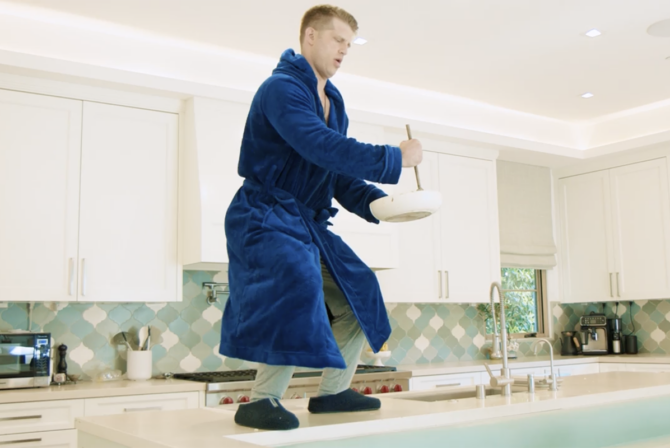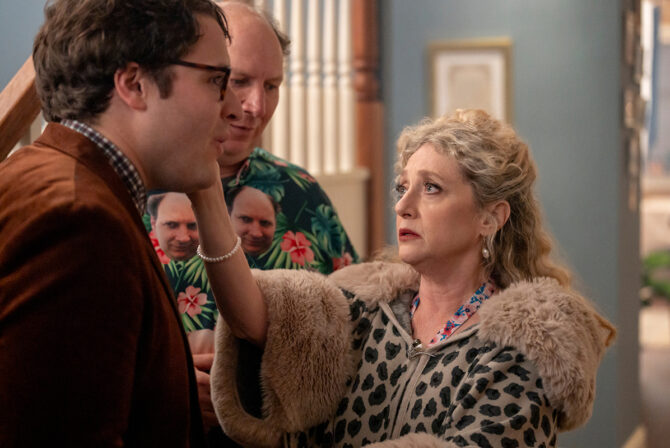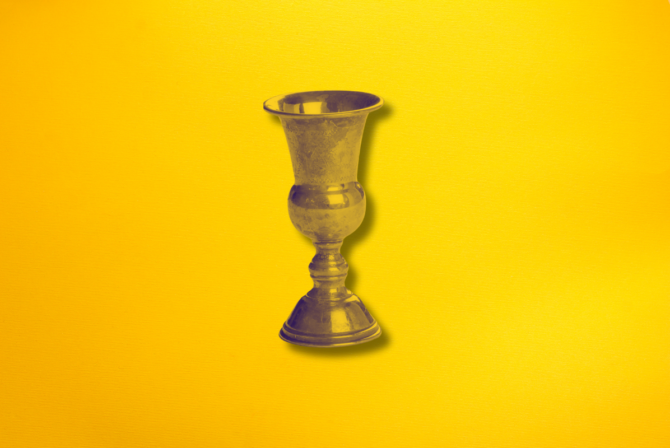Of all the Jewish holidays, Passover was the one my mother really owned. It gave her the perfect excuse to commit entirely to two of her most beloved occupations: cooking elaborate dishes and listening to Beethoven, preferably simultaneously and definitely the violin concerto. In my memory she cooked for two weeks in advance of the seders, for over 20 guests on each of the two nights.
While my grandmother set me and my sisters to work polishing the silver and the cleaning lady labored mightily, heaving the vacuum cleaner up and down the stairs, my mother reigned in the kitchen. She made everything from scratch–richly concentrated chicken broth that she simmered and skimmed until there wasn’t a speck of fat, fluffy kneidlach, gefilte fish from three types of white fish purchased at the most expensive fish shop in town and then ground by hand at home, roasted chickens, tzimmes, three different green vegetable dishes (including steamed asparagus with lemon sauce), brisket cooked in a mustard-garlic paste, individual meringues that she served with sweetened fruit for dessert, and sponge cakes. And I am pretty sure I missed a few things.
During the days of preparation the house was filled with cooking odors so intense that they sometimes woke my little sister up at night. When we returned home from school each afternoon the formica kitchen table would be covered from end-to-end in the products of that day’s labors. Invariably there was something for us to eat–a lemony sponge cake that had been rejected because its crown had not risen past the rim of the tube pan, or the boiled chicken that had been strained out of the broth. With a bit of salt and pepper it was surprisingly tasty.
Given the perfect timing and execution of these meals, a casual observer would be startled to learn that my mother was, in every other aspect of her life, completely disorganized and almost comically scattered. She never paid her utility bills until the red-bordered final notice arrived. She had no idea where she kept her children’s vaccination forms, she forgot or lost the notices we brought home from school. She couldn’t program the thermostat or the VCR and she was always shouting at us to hurry because she was late again and it was embarrassing.
But in the kitchen she was serene. She was the mistress of perfect timing. And she never had to rummage in the recesses of a cupboard for an ingredient because she knew exactly where it was.
My grandmother was banned from the kitchen, except to help with plating and serving the food. She was very good at organizing things and setting a beautiful table, but the awfulness of her cooking, which depended heavily on Hamburger Helper and Shake ‘n Bake, was family legend.
My mother learned the secrets to Mitteleuropa Jewish cooking by recruiting her grandmother, who emigrated as a teenager from the Hapsburg Empire to the prairies of western Canada. She was in her 80s by then, but still elegant, sharp-tongued, and with the physical and intellectual strength of a woman 20 years her junior. My earliest memories are of sitting in our kitchen and watching the two of them, both clad in smock-like house dresses, engaged in a marathon cooking session. Together they proofed yeast, punched bread dough, braided challahs, braised short ribs, pickled cucumbers, ground fish, grated potatoes, and produced buttery cakes flavored with poppyseed, walnuts, sugar, and cinnamon. My mother was a natural: she learned how to season by taste and measure by eye.
Decades later, long after I’d moved to another continent, I asked my mother, during a visit to Canada, if she’d teach me those old recipes I remembered so fondly. She flapped her hands impatiently and said she’d stopped making those dishes years ago because they were too fattening and rich. When I pressed her, she claimed to have forgotten the recipes. Except for the chicken soup with kneidlach, which she made on every major holiday.
When she was diagnosed in the spring of 2010 with a rare form of cancer that was in a very advanced stage, she ordered us all home for what we thought would be the final family seder (in the end an operation earned her an extra year, but a frail one). She would make the chicken soup, she insisted with a mixture of Jewish melodrama and heroism. And so she did. She perspired from the effort of standing and sometimes held onto the oven door for support, but she produced that elegantly translucent, amber broth. Finally, it was ready.
“Taste it,” she said, and it was just as I remembered: rich, concentrated and flavorful.
“No,” she wept. “It doesn’t taste right.”
Then she lay on the living room couch and issued instructions to me and my sister as we prepared the rest of the meal. “Use the elephant garlic for the brisket,” she called out in a wan voice. “And don’t cook the kneidlach too long. They should be soft.”
After we’d finished reading the haggadah and distributed the afikoman gifts to the grandchildren, my sister and I spent two hours washing the dishes and cleaning the kitchen. Between the two of us we had made a very abridged version of those elaborate seder meals my mother used to prepare all on her own for more than twice as many guests, and we were completely exhausted.
“How,” we wondered, “did she do it?”
Like this post? Get the best of Kveller delivered straight to your inbox.







